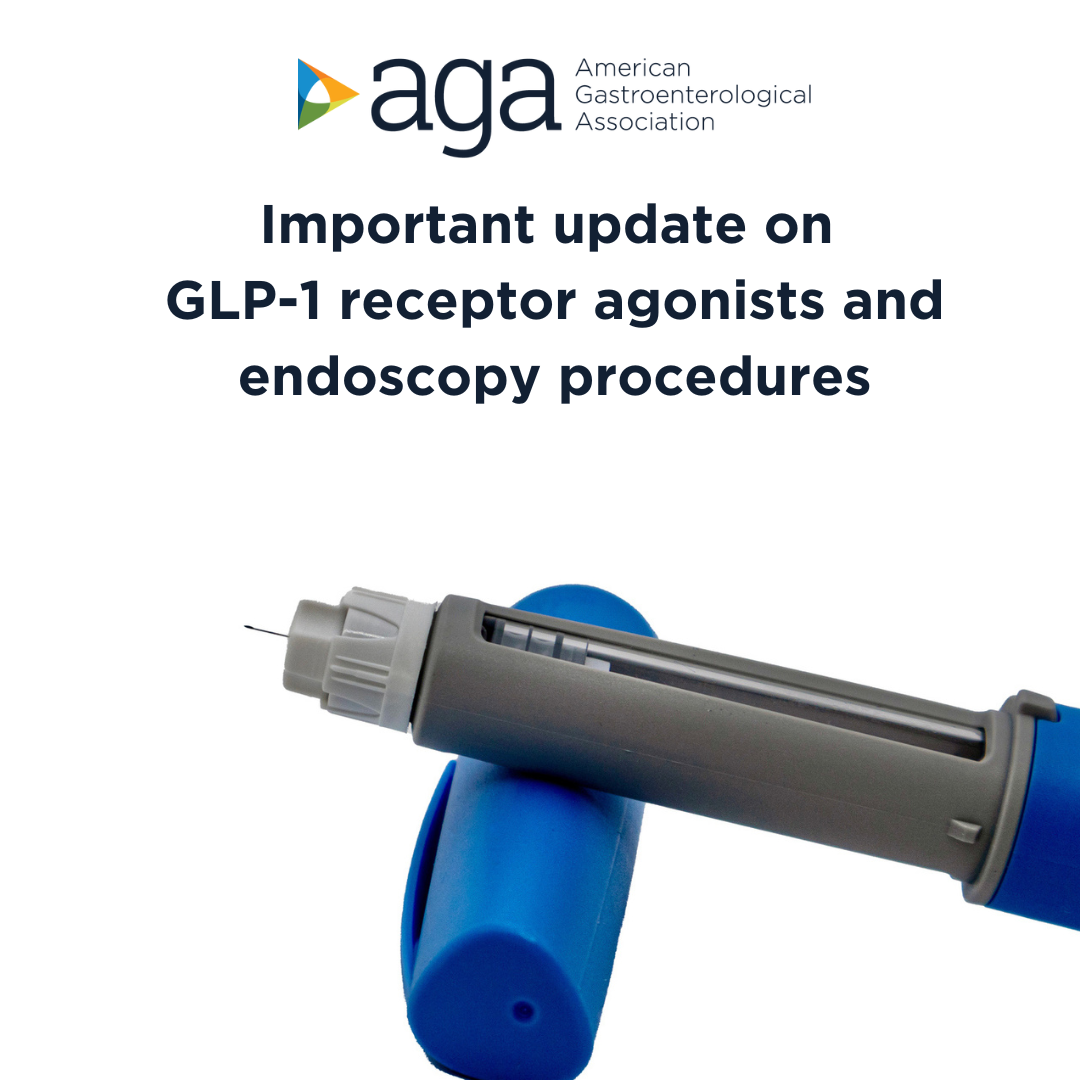There has been increasing concern about performing endoscopic procedures, in particular upper endoscopies, on patients who are using glucagon-like peptide 1 (GLP-1) receptor agonists
(GLP-1 RAs) due to their effect on slowing gastric motility and the risk of aspiration of retained gastric contents in sedated patients.
Generally, in patients on GLP-1 RAs who have followed standard perioperative procedures (typically an 8-hour solid-food fast and a 2-hour liquid fast) and who do not have symptoms of nausea, vomiting, dyspepsia, or abdominal distention, we advise proceeding with upper and/or lower endoscopy. In patients with symptoms suggesting possible retained gastric contents, transabdominal ultrasonography can be utilized to assess the stomach—if there is sufficient clinical expertise and the equipment is available—but evidence to support this modality in standard practice is lacking. In symptomatic patients for whom delaying endoscopy may have negative clinical consequences, rapid-sequence intubation is a consideration; however, this may not be possible in most ambulatory or office-based endoscopy settings. Lastly, when possible, placing patients on a liquid diet the day before sedated procedures may be a more acceptable strategy, in lieu of stopping GLP-1 RAs, and more consistent with the holistic preprocedural management of other similar conditions. In closing, we endorse the GI multi-society guidance that “patient safety will always be
paramount, and in the absence of actionable data, we encourage our members to exercise best practices when performing endoscopy on patients on GLP-1 RAs.













